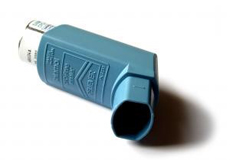Chronic Cough

Chronic cough is one of the common reasons for patients visiting the primary care physicians, and it is more frequent among elderly and school-age children patients. Chronic cough is a disturbing health condition for both the patient and the doctor.
Chronic cough is defined as the cough that persists more than eight consecutive weeks. It may lead to some troublesome complications, such as tension, stress, lack of sleep, muscle weakness, and perhaps what is called stress incontinence (lack of urine control under stress).
However, there is a kind of cough that lasts for a period of four weeks, and is not classified as a chronic condition. This type of cough is more frequent in cases of chest infection (like Bronchitis, Bronculitis or Pneumonia). In such conditions, the main symptoms disappear and the patient's condition improves a few days after treatment, but the coughing takes longer to disappear completely.
In many cases, the condition that causes chronic cough is not clear, and cannot be easily identified either from the patient's description of symptoms or during clinical examination.
Starting empirical treatment for some cases, even when the diagnosis is not yet confirmed 100%, may decrease patient suffering, save the patient time and spare the patient inexpensive tests. The empirical treatment in such cases may provide quick recovery, and confirm the diagnosis at the same time. 
One of the common causes of chronic cough is Allergic Rhino-Sinusitis .In his disorder, secretions from the upper respiratory tract are produced frequently in moderate to large amount as a result of inflammatory process secondary to allergy and cause what is called Postnasal Drippling . Patients presented with these conditions feels symptoms such as itching and irritation of the palate, the frequent need to clear their throats, cough and hoarseness.
Available treatment is effective in controlling the inflammatory process and alleviating the cough and other symptoms. The treatment comes in form of nasal local steroid sprays, antihistamines and decongestants tablets (the latter should be used with caution and for short duration since it may result in nasal tissue atrophy and Blood Pressure elevation).
Bronchial Asthma (BA) is the second common cause of chronic cough. Asthmatic patients might present only with cough with no other common symptoms, like shortness of breath or wheezing as traditional cases, and this condition is known as Cough Variant Asthma, and it is more common in children.
BA runs in families, therefore, it is more frequent among people who have family history of asthma especially in first degree relatives. It is also linked to other types of allergies such as Nose Allergy, Eye Allergies or Skin Allergies (eczema).
Asthmatic patients show signs of asthma during physical examination only if they have acute attacks at time of examination, but they may appear normal in between attacks and this will not exclude the diagnosis of BA.
Sometimes doctors do what is known as Pulmonary Function Test to confirm the diagnosis. Asthma can be treated and controlled well using different treatment modalities like bronchodilators and steroid inhalers and anti inflammatory treatment like Montelukast Sodium (Singulair) as prescribed and monitored by the physician. Some patents may have misconceptions regarding the long-term use of steroid inhalers for treatment of asthma. Steroid inhalers are effective and safe if they were used under supervision and follow up of the physician.
Gastro- esophageal reflux occurs when the valve between esophagus and stomach is weak and not preventing well the reflux of stomach contents upward into the esophagus. For some cases, this is also aggravated by elevation of the stomach above its normal position. Both mechanisms result in common symptoms like heartburn, dyspepsia, nausea and cough, especially after heavy meal or at night.
This condition is treated by different measures like controlling diet, splitting meals; avoid sleeping just after eating, physical exercise and decrease weight. Medications are available to control the symptoms like ulcer drugs, antacids and drugs controlling Gastrointestinal Tract motility.